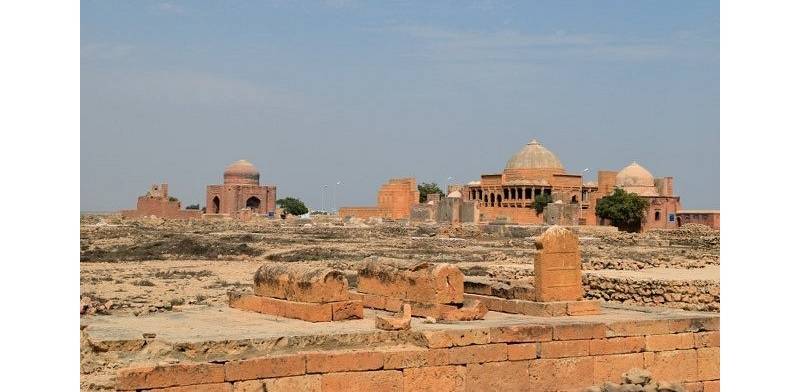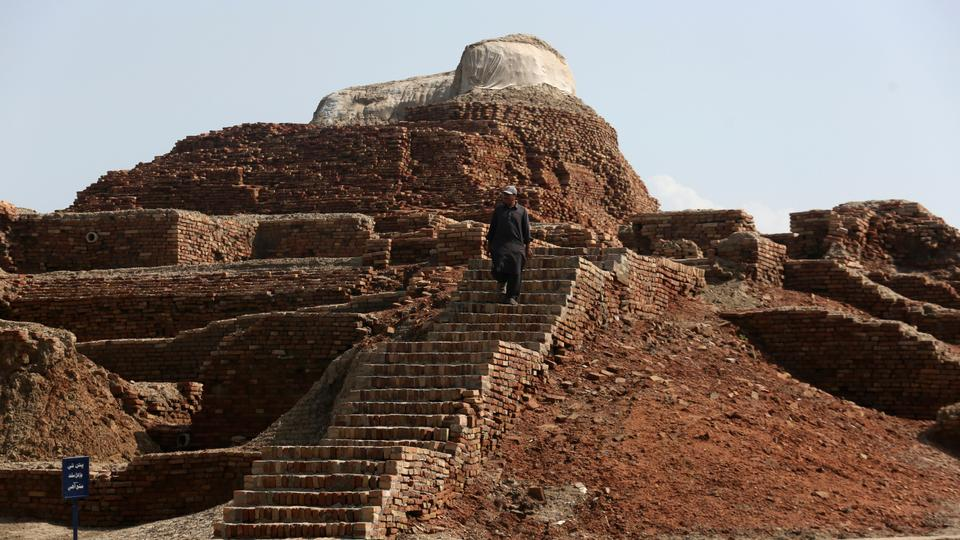
The UNESCO will initiate a project to protect Sindh's Moen-Jo-Daro and Makli Necropolis from the effects of natural disasters.
The decision to protect the heritage sites was announced at a meeting held in Islamabad, on Wednesday.
The participants were informed that the decision was made in wake of the abrupt environmental changes taking place across the world and South Asia's vulnerability in this regard.
The team will be conducting damage assessment under the World Heritage Centre Emergency Assistance, in collaboration with the Sindh culture, tourism, antiquities, and archives department.
This assessment would help the organisation formulate a concrete strategy for safeguarding the sites and preserve them in their existing form.
Heavy rainfall during the monsoon and subsequent floods played havoc across the country and resulted in serious damage to the historical sites, too.

The world body has marshalled a fund of worth $350,000 from the special fund for this project after the recent visit of UN Secretary-General Antonio Guterres and Director of Unesco Islamabad, Youssef Filali-Meknassi.
In January, Filali-Meknassi, accompanied by National Project Officer Mariam Farooqi, visited the Makli necropolis in Thatta for an initial assessment of the damages caused by heavy rainfall, and the urgent stabilisation measures carried out by the site management team.
Similarly, a team led by UNESCO National Professional Officer Jawad Aziz evaluated post-rain effects on the historical site of Moen-Jo-Daro.
After the inspection, the team concluded that it was essential to arrange for the receding of the rainwater to avert the threat to the centuries-old structures. It is pertinent to mention here that the sites are part of the list of world heritage sites.
It is hoped that the restoration efforts would help preserve the precious sites and allow the visitors to see the effects of the efforts in the days to come. What follows is also a boost to the tourism industry.
The decision to protect the heritage sites was announced at a meeting held in Islamabad, on Wednesday.
The participants were informed that the decision was made in wake of the abrupt environmental changes taking place across the world and South Asia's vulnerability in this regard.
The team will be conducting damage assessment under the World Heritage Centre Emergency Assistance, in collaboration with the Sindh culture, tourism, antiquities, and archives department.
This assessment would help the organisation formulate a concrete strategy for safeguarding the sites and preserve them in their existing form.
Heavy rainfall during the monsoon and subsequent floods played havoc across the country and resulted in serious damage to the historical sites, too.

The world body has marshalled a fund of worth $350,000 from the special fund for this project after the recent visit of UN Secretary-General Antonio Guterres and Director of Unesco Islamabad, Youssef Filali-Meknassi.
In January, Filali-Meknassi, accompanied by National Project Officer Mariam Farooqi, visited the Makli necropolis in Thatta for an initial assessment of the damages caused by heavy rainfall, and the urgent stabilisation measures carried out by the site management team.
Similarly, a team led by UNESCO National Professional Officer Jawad Aziz evaluated post-rain effects on the historical site of Moen-Jo-Daro.
After the inspection, the team concluded that it was essential to arrange for the receding of the rainwater to avert the threat to the centuries-old structures. It is pertinent to mention here that the sites are part of the list of world heritage sites.
It is hoped that the restoration efforts would help preserve the precious sites and allow the visitors to see the effects of the efforts in the days to come. What follows is also a boost to the tourism industry.

